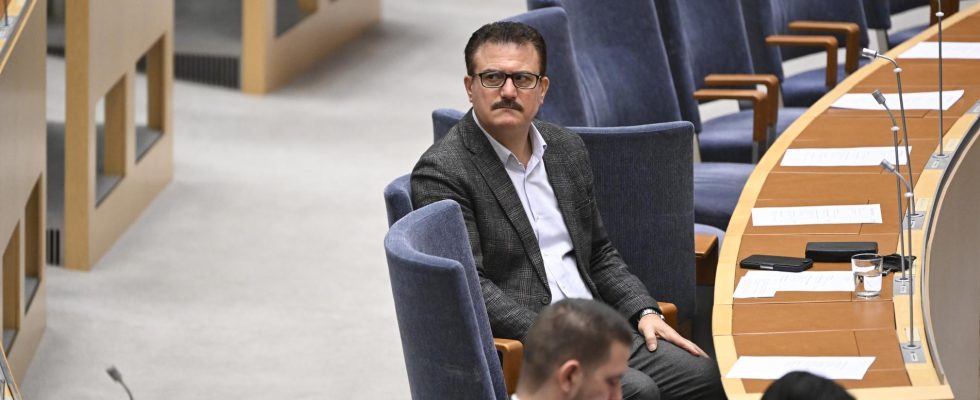unsaveSave
expand-left
full screen
chevron-rightnext
Social Democrats member of parliament Jamal El-Haj during a question and answer session last week. Archive image.
1 / 2Photo: Jessica Gow/TT
As the Social Democrats’ first political savage in the Riksdag, Jamal El-Haj is making history. But his importance probably ends there.
– I don’t think he will have any influence at all, says political scientist Peter Esaiasson.
Jamal El-Haj leaves the Social Democrats after he lost the trust of the party leadership. But El-Haj intends to stay in the Riksdag, he announces.
However, life as the first ever S wild is not going to be so pleasant, believes Peter Esaiasson, professor of political science at the University of Gothenburg.
– You can quote Thomas Hobbes, when he characterized life before there was any strong state power: “Solitary, miserable, brutal and short”. It’s no fun. You become a socially outcast person. I guess he won’t be in parliament that much, says Esaiasson.
No influence
So there will be no committee work or anything?
– Holy shit, never.
As the parliamentary situation looks today, there is also no room for El-Haj to make an Amineh Kakabaveh, who after his departure from the Left Party managed to use his mandate to push through his own issues.
– Right now he doesn’t play any role. In that case, it would be at a later stage if there were to be more dropouts, says Peter Esaiasson.
“Crack in the wall”
El-Haj’s savagery possibly has a certain impact on the image of the Social Democrats, who usually have better control over their members of parliament, Esaiasson believes.
– The Social Democrats are the strongest bastion for Swedish party-based democracy, where the parties always stick together in the Riksdag. Now, perhaps for the first time, there is a crack in that wall. In the long-term light, maybe it can signal something, but it’s only an ant step in the context.
How is this received in the S joint?
– You probably have to ask them, but it is clear that it is difficult when something happens for the first time, and it gives a signal to the party leadership that they may not have full control over the group.
